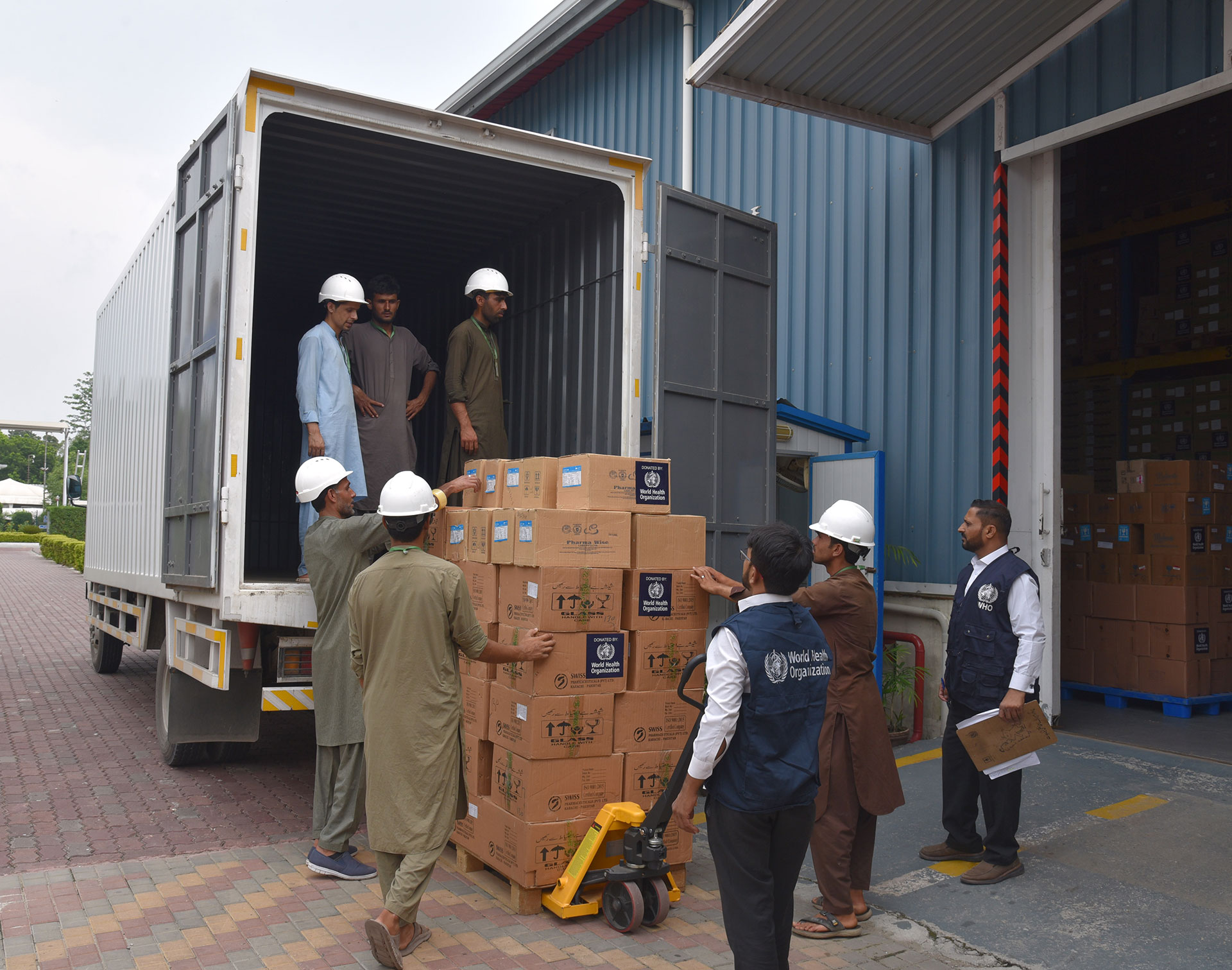 WHO teams load one of the trucks dispatched to preposition essential medical supplies. Photo credit: WHO/Hamid Inam13 July 2025, Islamabad, Pakistan – The World Health Organization (WHO) has dispatched 5 trucks carrying over 300 000 essential medical items for health departments across Pakistan to be prepositioned for potential health emergency responses in anticipation of monsoon floods between July and October.
WHO teams load one of the trucks dispatched to preposition essential medical supplies. Photo credit: WHO/Hamid Inam13 July 2025, Islamabad, Pakistan – The World Health Organization (WHO) has dispatched 5 trucks carrying over 300 000 essential medical items for health departments across Pakistan to be prepositioned for potential health emergency responses in anticipation of monsoon floods between July and October.
The trucks contain over 2400 boxes of medicines and medical supplies for distribution to health departments in 4 provinces (Balochistan, Khyber Pakhtunkhwa, Sindh and Punjab) and Pakistan-administered Kashmir (PAK). Based on the provincial medicine contingency plans for the period from July to October, these supplies are being prepositioned solely for potential emergency responses in the event of natural disasters triggered by heavy rains, flooding or related disease outbreaks.
The prepositioning comes as part of preparations in support of Pakistan’s Monsoon Contingency Plan 2025. Under the leadership of the Ministry of Health, and with support from WHO and partners, the Contingency Plan has been designed to ensure preparedness to provide, when necessary, emergency health assistance to 1.3 million vulnerable people across 33 priority districts.
“WHO emergency teams are working in close collaboration with health departments across the country to preposition medicines and medical items that would allow a rapid response to save lives. We are proud to partner with Pakistan to deliver health for all and build resilience to better adapt and respond to the increasing frequency and severity of climate-related hazards, protecting the most vulnerable,” said WHO Representative in Pakistan Dr Dapeng Luo.
The Global Climate Risk Index 2021 ranked Pakistan as the 8th most affected country by extreme weather events between 2000 and 2019 due to recurring severe natural disasters, including floods, droughts, heatwaves and pandemics. Among these, monsoon-induced floods are the most recurrent and destructive, with catastrophic impacts on human health, livelihoods and infrastructure.
For additional information, please contact:
Maryam Yunus, National Professional Officer – Communications, WHO Pakistan, This e-mail address is being protected from spambots. You need JavaScript enabled to view it (copying This e-mail address is being protected from spambots. You need JavaScript enabled to view it )
José Ignacio Martín Galán, Head of Communications, WHO Pakistan, This e-mail address is being protected from spambots. You need JavaScript enabled to view it
About WHO
Founded in 1948, WHO is the United Nations agency that connects nations, partners, and people to promote health, keep the world safe and serve the vulnerable. We work with 194 Member States in 150+ locations – so everyone, everywhere, can attain the highest level of health. For more information, visit https://www.emro.who.int/countries/pak/index.html. Follow WHO Pakistan on Twitter and Facebook.



